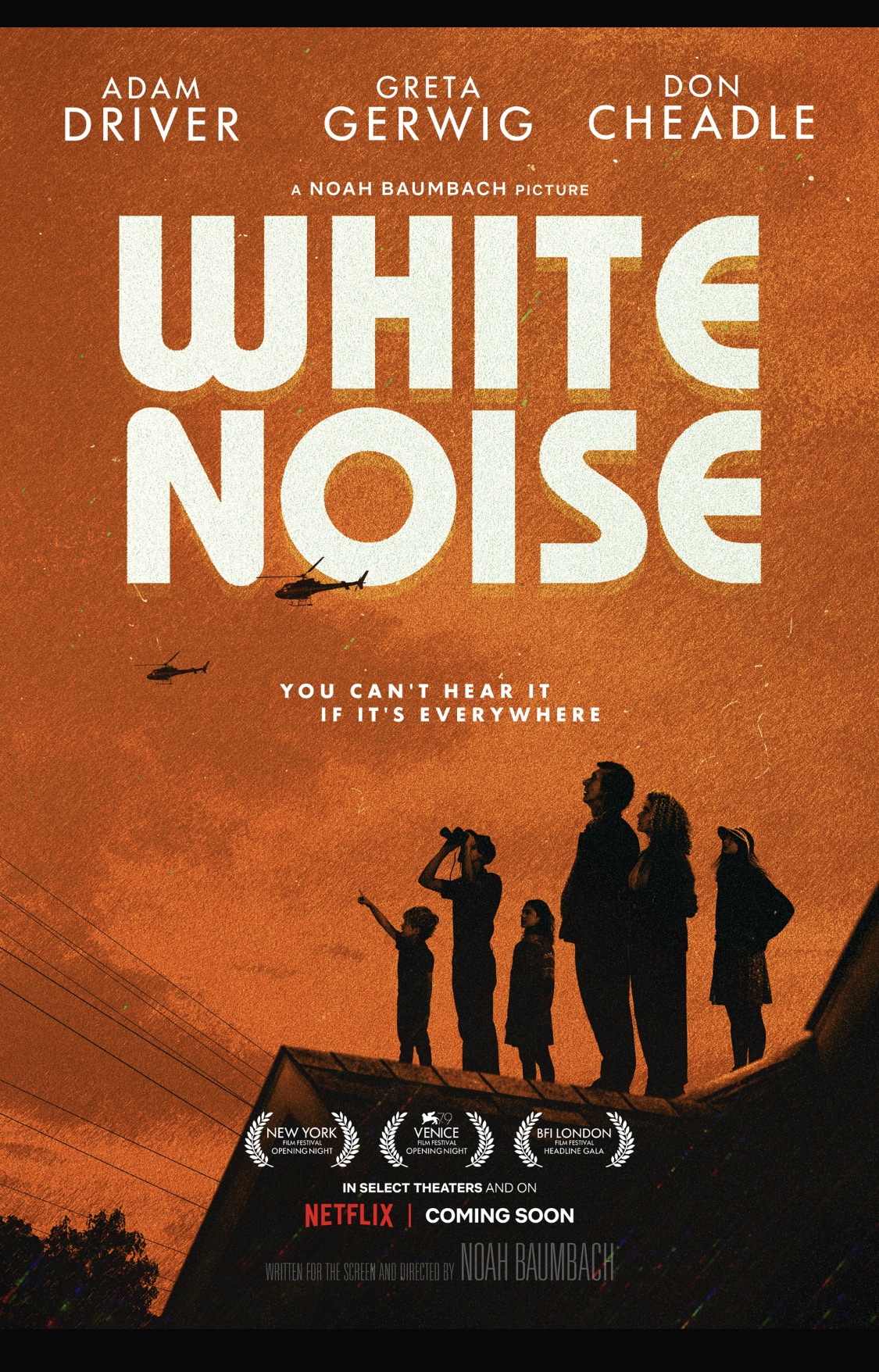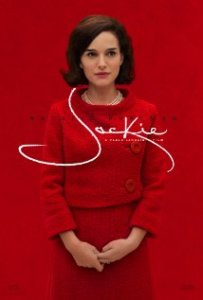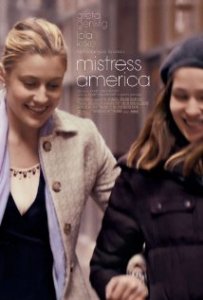 Greetings again from the darkness. A reasonable assumption could be made that a movie based on a doll so popular with pre-adolescent girls would be geared towards that audience. However, this is the era of comic book movies targeting “grown-ups”, and since we know, based on her previous work (the exceptional LADY BIRD, 2017), Greta Gerwig is an intelligent filmmaker, a more reasonable assumption is that she purposefully aimed the movie at women who once played with Barbie dolls and now fill their days with work, family, and adulting. This strategy has proven to be box office gold, and the heavy dose of cosplay at screenings proves the lasting impact this plastic doll has had on many women who lined up for tickets.
Greetings again from the darkness. A reasonable assumption could be made that a movie based on a doll so popular with pre-adolescent girls would be geared towards that audience. However, this is the era of comic book movies targeting “grown-ups”, and since we know, based on her previous work (the exceptional LADY BIRD, 2017), Greta Gerwig is an intelligent filmmaker, a more reasonable assumption is that she purposefully aimed the movie at women who once played with Barbie dolls and now fill their days with work, family, and adulting. This strategy has proven to be box office gold, and the heavy dose of cosplay at screenings proves the lasting impact this plastic doll has had on many women who lined up for tickets.
Ms. Gerwig co-wrote the screenplay with her real-life spouse and fellow filmmaker, Noah Baumbach (MARRIAGE STORY, 2019), and it’s fascinating to see what they have produced. Whether you find the film entertaining is another matter altogether, yet we tip our cap to the strange, visually-stimulating, and thought-provoking end result. Many will go in-depth on analyzing the gender politics and feminist approach to the story; however, I’m just here to discuss this as a movie, not a movement.
Two-time Oscar nominee Margot Robbie stuns in the opening sequence (a tribute to 2001: A SPACE ODYSSEY) as the original 1959 Barbie. In fact, Ms. Robbie is terrific throughout in this more-challenging-than-expected role. She’s so much more than a pretty face in high heels, as she’s previously proven in a risk-taking career featuring memorable turns in such films as THE WOLF OF WALL STREET (2013), SUICIDE SQUAD (2016), I, TONYA (2017), as Sharon Tate in ONCE UPON A TIME IN HOLLYWOOD (2019), and last year’s underappreciated BABYLON (2022). This time she portrays ‘Stereotypical’ Barbie, whose everyday is perfect in Barbieland. It’s here where we meet a diverse group of Barbies featuring Issa Rae, Alexandra Shipp, Emma Mackey, Sharon Rooney, Dua Lipa, and others. We are also introduced to Ken (two-time Oscar nominee Ryan Gosling, terrific here), whose mood for the day is totally dependent on whether Barbie acknowledges him. An equally diverse group of Kens features Simu Liu, Kingsley Ben-Adir, John Cena, Ncuti Gatwa, and others.
Barbie’s paradise is rocked one day when she begins wondering about death. A trip to “Weird Barbie” (a kooky Kate McKinnon) lets her know that the only cure for this existential crisis is a visit to the human world, where a sad girl is playing with her doll. It’s really an imaginative hook to allow the two worlds to collide. Unfortunately, only bits and pieces of the human world clicked for me (loved the rollerblading at Venice Beach). It makes sense that Barbie is shocked to discover the misogyny and patriarchy ruling the human world, but there are three other elements at play here: Ken discovering that men don’t take a backseat to women in this world, and in fact, they dominate; the corporate office of Mattel plays like a slapstick cartoon with Will Ferrell as a nonsensical CEO; and the mother-daughter duo of America Ferrera as Gloria and Ariana Greenblat as Sasha. The big twist occurs in that latter sequence, and it’s Ms. Ferrera who dishes out the gut punch soliloquy about what’s expected of women and how they are viewed. This monologue is the lesson director Gerwig wants viewers to leave with.
Barbie’s return to a much-changed Barbieland finds Ken and other Kens treating the Dreamhouse like a Frat house. See, the boys have learned how to run things their way … and at its core, that’s my main issue with the movie’s theme. Empowering women is a good thing, but why did Ms. Gerwig feel the need to make everything either a win for the women or a win for the men? I have always thought equality was the goal, not dominance. It’s this approach that gives the film a serious and dark undertone in a quite heavy-handed manner. Sure women enjoy having power. So do men. That’s no great mystery solved, and in fact makes these obvious points somehow more obvious.
Let’s talk about a few other less ominous topics. Helen Mirren delivers an admirable voiceover as the narrator, and a depressed Barbie and Ken’s affinity for horses are nice touches. Two of my favorite segments are Barbie’s first interaction in the human world … a “beautiful” woman on a park bench played by Oscar winner Ann Roth (a renowned Costume Designer who did not handle the costumes for this film), and a conversation with Barbie inventor Ruth Handler (played by Rhea Perlman), who named the doll after her daughter. While I hold firm on my belief that the film is not especially entertaining/fun, I’ll also admit the song and dance around the “I’m Just Ken” number was a hoot. Other than performances from Margot Robbie and Ryan Gosling, the star here is the Production Design from six-time Oscar nominee Sarah Greenwood. The film looks amazing, even if you might get your fill of pink by the end. Barbieland is quite a sight – it’s a shame the rest of the movie didn’t deliver this much fun, and instead pitted men against women.



 Posted by David Ferguson
Posted by David Ferguson  Greetings again from the darkness. Writer-director Noah Baumbach’s latest film is one of those that causes us to feel a bit guilty at not finding it as important or noble as it finds itself. That’s not meant to be as critical as it sounds. Afterall, Baumbach is the one who has managed to bring the “unfilmable” … Don DeLillo’s 1985 novel (National Book Award for fiction) … to the big screen. Baumbach’s last film was MARRIAGE STORY (2019), a masterpiece on relationships, and while this current film is a more ambitious undertaking, it likely will prove less accessible to many viewers.
Greetings again from the darkness. Writer-director Noah Baumbach’s latest film is one of those that causes us to feel a bit guilty at not finding it as important or noble as it finds itself. That’s not meant to be as critical as it sounds. Afterall, Baumbach is the one who has managed to bring the “unfilmable” … Don DeLillo’s 1985 novel (National Book Award for fiction) … to the big screen. Baumbach’s last film was MARRIAGE STORY (2019), a masterpiece on relationships, and while this current film is a more ambitious undertaking, it likely will prove less accessible to many viewers.








